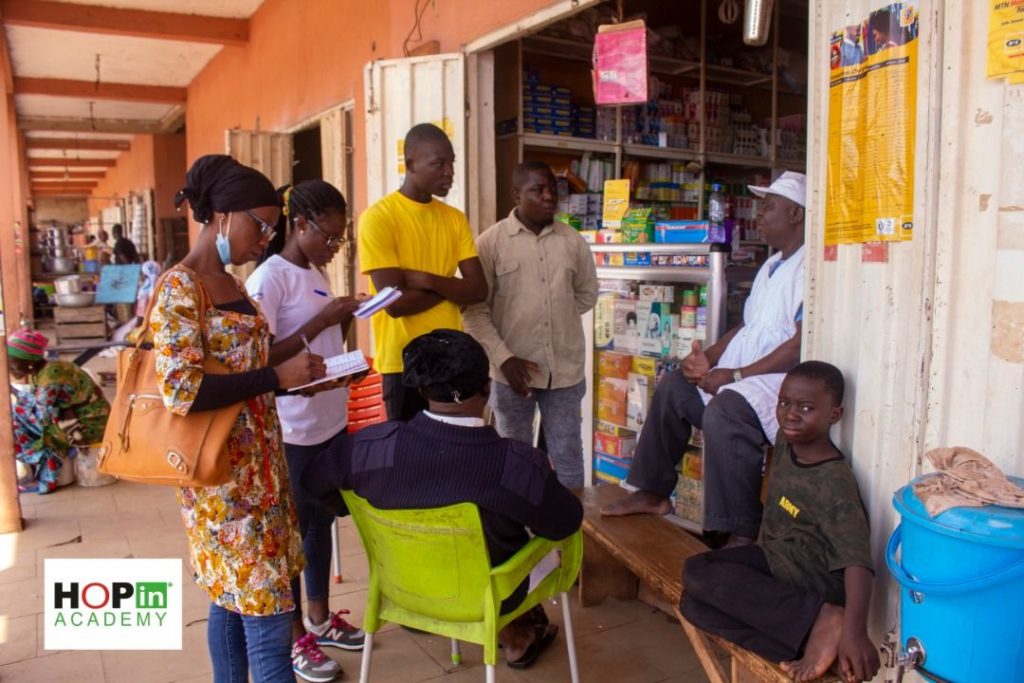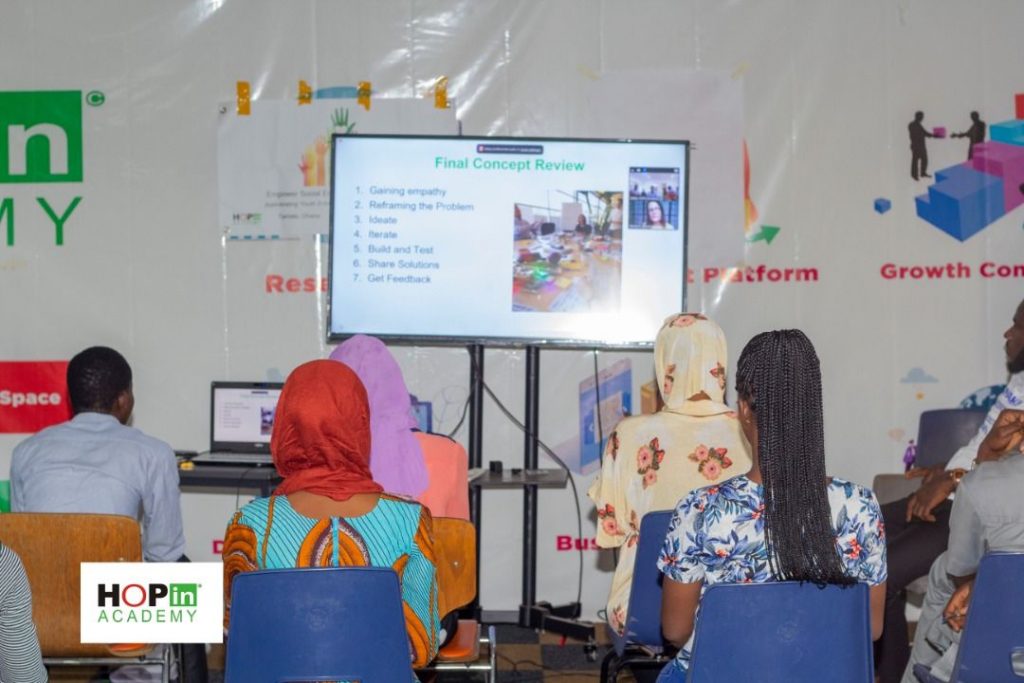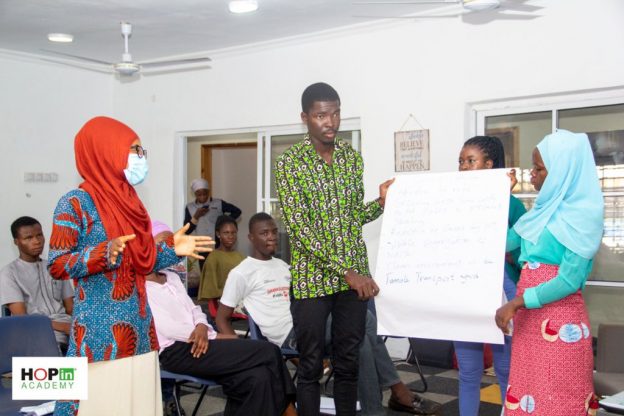Following the success of the Empower Social Entrepreneurship Program (ESEP) in Nepal, Global Minds Network launched an online pilot program in Ghana on June 22 with local partner HOPin Academy in Tamale. In fulfilling the mission of accelerating youth entrepreneurship for social impact, the local participants were able to present solutions for clean drinking water and waste management by the end of the program.
A developing economy with a large youth population, Ghana is among the leading African countries that has demonstrated increased growth in entrepreneurship and start-ups. Tamale and Northern Ghana met the criteria for ESEP and were selected for the online pilot in order to engage youth in social entrepreneurship and create awareness for the UN Sustainable Development Goals (SDG).
Making the Leap from Nepal to Ghana
Established in 2013, HOPin Academy is an innovative entrepreneurial organization located in Tamale that provides various avenues to directly learn and explore the field of entrepreneurship with the aid of technology. With the help of HOPin Academy, Global Minds Network was able to establish relationships with the local network in Ghana in order to develop a pilot program for ESEP. Founder and Executive Director of Global Minds Network Dr. Karina R. Jensen explained, “When meeting with our future local partner HOPin Academy, I was impressed by their active role in the local entrepreneurship eco system.”
Flashing back to Spring of 2015, Dr. Karina wrapped up her volunteer work at Nepal Orphans Home with an aspiration to develop alternative solutions to positively uplift the youth community. Over the span of three years, her ideas solidified into a project proposal to develop an accelerated social entrepreneurship program. In collaboration with local business schools and non-profit organizations, a platform for youth innovators was developed through the pilot program in Kathmandu in 2019. The Empower Social Entrepreneurship Program became the official social action initiative supported by Global Minds Network. To learn more about the program in Nepal, read our blog on Empower Youth Entrepreneurs for Social Impact.
Creating an Online Experience in a Pandemic Year
Although the first ESEP in Nepal allowed for in-person learning, the format of the pilot program in Ghana was designed for online training with on-site mentorship due to the current pandemic situation. Youth participants from Tamale and across Ghana gathered in a connected classroom at the HOPin Academy campus. They were able to learn virtually and on-site from guest professors and guest speakers across the world. Aged from 18 to 28, youth participants were excited to have the opportunity to gain insights on social impact for their local communities. As noted by one of the youngest participants, a recent high school graduate: “I want to be empowered so that I can help create the awareness of starting up businesses and also help create jobs to eradicate poverty.”

The online pilot was divided into two phases: 1) Understanding Problems and Creating Solutions and 2) Making It Happen: Turning Ideas into Actions. Phase 1 introduced four modules focused on understanding societal problems and devising solutions through research and constructing prototypes. Phase 2 followed with four modules on business plan development and a Pitch Session to implement ideas for social impact.
Through Zoom, Dr. Karina introduced core concepts for design thinking and social entrepreneurship. In addition, guest lecturer Dr. Bisrat Misganaw delivered a session on Building a Start-Up. Guest speakers Lokesh Venkataswamy and Roseline Ilori provided insights on design thinking for their online talks while local social entrepreneurs Adija Alhassan and Emmanuel Konam shared their inspirational stories on-site to help participants gain a holistic understanding of starting a social venture.

Developing Valuable Solutions for Community Challenges
After an intensive training program, class discussions and exercises, case stories, and research, the two teams presented their final pitch with a prototype and business proposal for the challenges they had selected at the start of the program. The solutions included a water pump and treatment system for addressing clean drinking water and a mobile waste bin for addressing waste management. The jury provided feedback and actionable advice to the teams who were awarded a Certificate of Completion and congratulations for their valuable solutons!
The online pilot in Ghana allowed Global Minds Network to provide essential training required for business management and idea execution, in addition to the development of a local ecosystem in Tamale. In a self-assessment evaluation before and after completing the program, students ranked themselves in three categories (Skill, Knowledge, and Mindset). Participants demonstrated positive improvement across all of the categories with the highest scores in problem-solving, business management, and social entrepreneurship.
Overall, the students enjoyed how the facilitators were committed and passionate about the program and made lessons clear and concise with organized presentations. Students shared, “[We] like the fact that the facilitators are committed. This has really widened [our] entrepreneurial knowledge. The practical nature of it was great, very interactive.” Taking in the student’s feedback, Global Minds Network looks forward to further developing and enhancing the program to empower and teach youth from developing economies about social entrepreneurship. Looking ahead to 2022 and beyond, there are plans to launch the Empower Social Entrepreneurship Program into more countries in Africa and South East Asia.
Author: Izzy Chung, Global Development Intern, Global Minds Network

